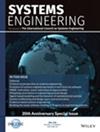Design teams and industry life cycles: The interplay of innovation and complexity
IF 1.6
3区 工程技术
Q4 ENGINEERING, INDUSTRIAL
引用次数: 0
Abstract
This paper studies how innovation teams can be optimally configured to yield the best possible performance at different stages of a certain technology's life cycle, which correspond to different levels of environmental complexity. To conduct our analysis, we have employed computational simulations of communities searching NK landscapes at varying levels of complexity. We studied how the relative proportion of exploring agents to exploiting agents in a community impacts the evolution of scores over time, and conducted additional investigations into the role of specialization (i.e., the agents' propensity to take their preferred action) and density (i.e., the expected width of social groups within the community).设计团队和行业生命周期:创新与复杂性的相互作用
本文研究了如何对创新团队进行优化配置,以在特定技术生命周期的不同阶段产生尽可能好的性能,这些阶段对应于不同水平的环境复杂性。为了进行我们的分析,我们对在不同复杂程度下搜索NK景观的社区进行了计算模拟。我们研究了社区中探索代理人与开发代理人的相对比例如何影响分数随时间的演变,并对专业化(即代理人采取首选行动的倾向)和密度(即社区内社会群体的预期宽度)的作用进行了额外的调查。
本文章由计算机程序翻译,如有差异,请以英文原文为准。
求助全文
约1分钟内获得全文
求助全文
来源期刊

Systems Engineering
工程技术-工程:工业
CiteScore
5.10
自引率
20.00%
发文量
0
审稿时长
6 months
期刊介绍:
Systems Engineering is a discipline whose responsibility it is to create and operate technologically enabled systems that satisfy stakeholder needs throughout their life cycle. Systems engineers reduce ambiguity by clearly defining stakeholder needs and customer requirements, they focus creativity by developing a system’s architecture and design and they manage the system’s complexity over time. Considerations taken into account by systems engineers include, among others, quality, cost and schedule, risk and opportunity under uncertainty, manufacturing and realization, performance and safety during operations, training and support, as well as disposal and recycling at the end of life. The journal welcomes original submissions in the field of Systems Engineering as defined above, but also encourages contributions that take an even broader perspective including the design and operation of systems-of-systems, the application of Systems Engineering to enterprises and complex socio-technical systems, the identification, selection and development of systems engineers as well as the evolution of systems and systems-of-systems over their entire lifecycle.
Systems Engineering integrates all the disciplines and specialty groups into a coordinated team effort forming a structured development process that proceeds from concept to realization to operation. Increasingly important topics in Systems Engineering include the role of executable languages and models of systems, the concurrent use of physical and virtual prototyping, as well as the deployment of agile processes. Systems Engineering considers both the business and the technical needs of all stakeholders with the goal of providing a quality product that meets the user needs. Systems Engineering may be applied not only to products and services in the private sector but also to public infrastructures and socio-technical systems whose precise boundaries are often challenging to define.
 求助内容:
求助内容: 应助结果提醒方式:
应助结果提醒方式:


